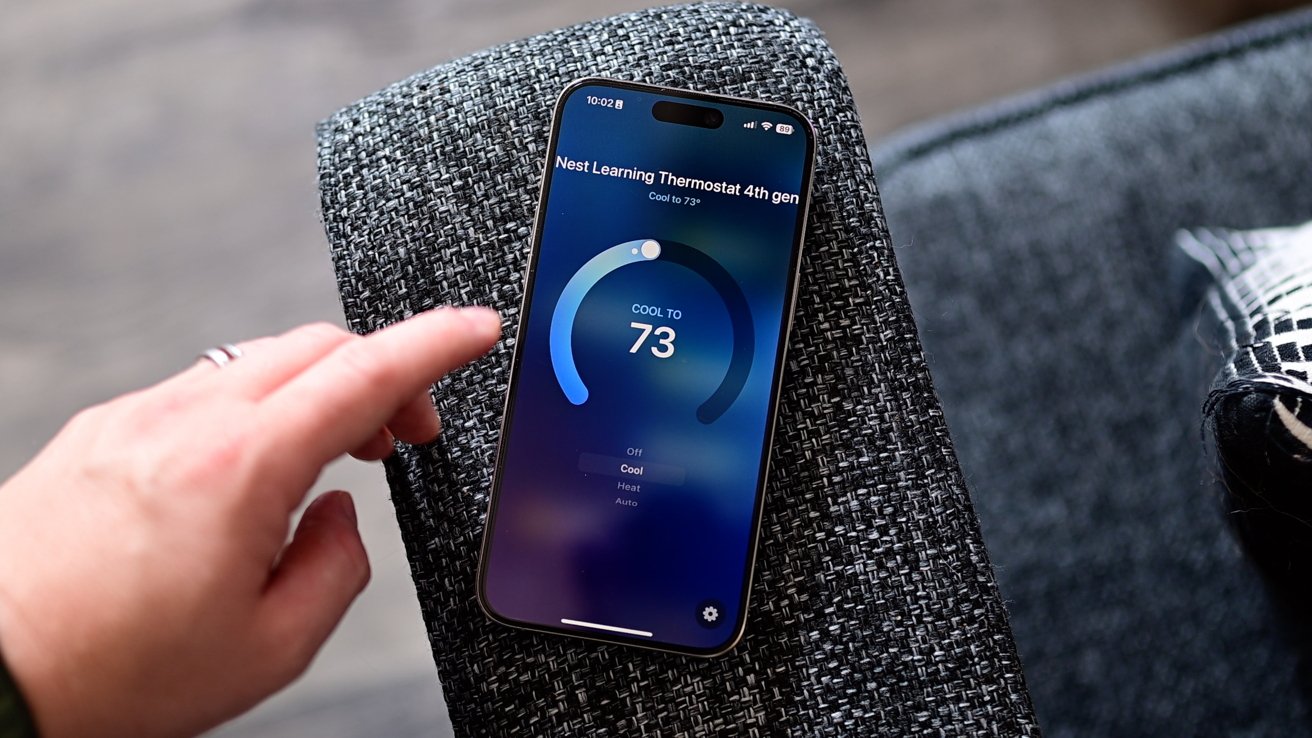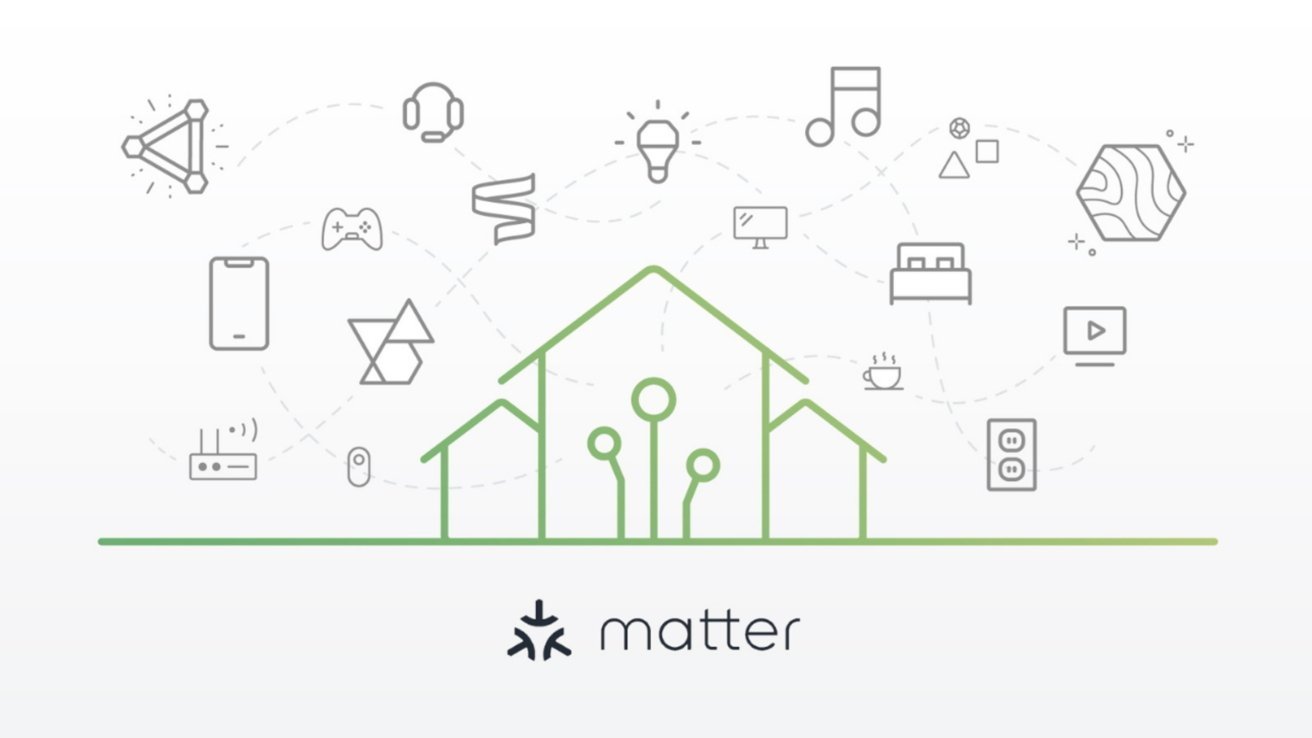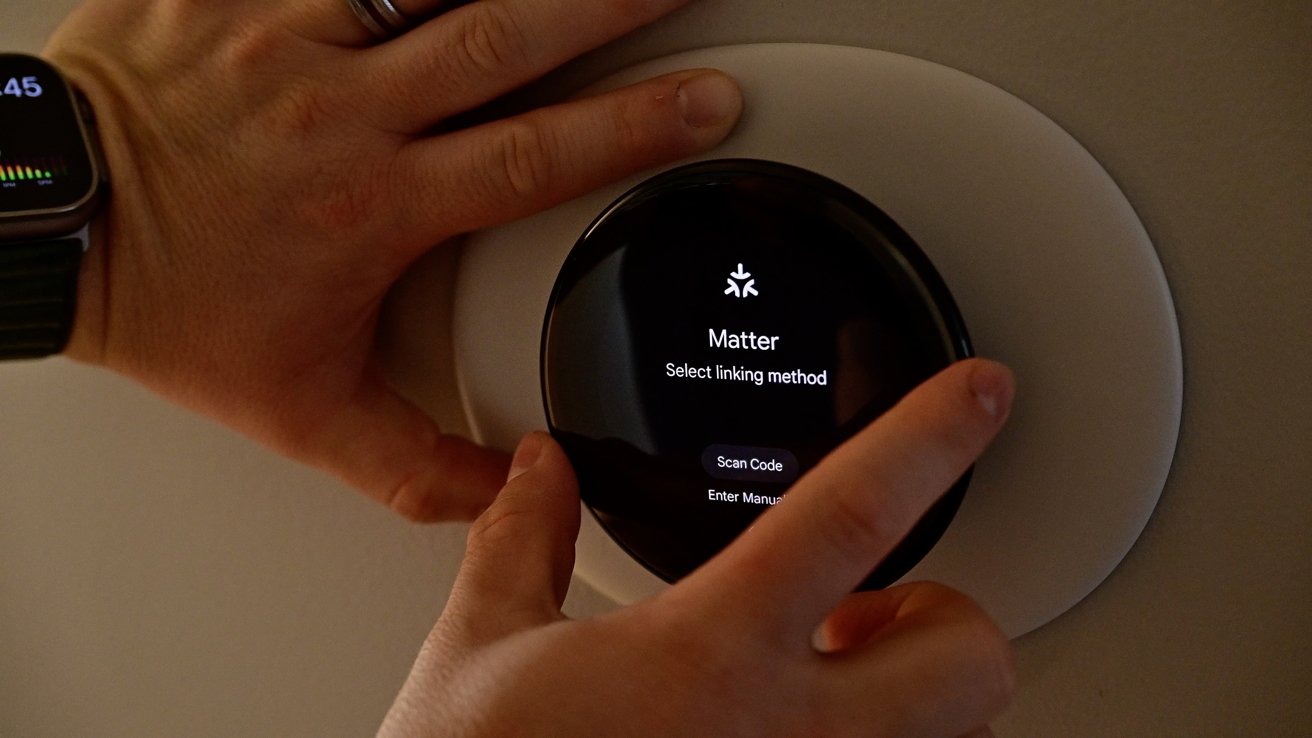Apple all-in on struggling Matter, to the detriment of HomeKit Accessory Protocol
Apple has privately and publicly pledged its support to new smart home standard Matter over its own HomeKit Accessory Protocol, but customer confusion and a staggered rollout has put the damper on widespread adoption.

Apple tries to push Matter forward
There's been steady progress in the smart home for Apple. The iPhone-maker has continued to innovate with Apple TV, HomePod, HomeKit -- which became Apple Home, before joining the Connectivity Standards Alliance (CSA) as a founding member.
The CSA is the governing body that develops the Matter standard, certifies accessories, and promotes it to new members and the public. Matter is largely based on Apple Home and was intended to unify the competing smart home platforms.
Speaking under the condition of anonymity, an Apple Home accessory manufacturer told AppleInsider that Apple was all-in on the new standard. So much so, that there would be no further updates to the HomeKit Accessory Protocol (HAP).
HAP is what accessory creators have used to date to develop products that work with Apple Home. That means all future supported devices for Apple Home would be coming via Matter, versus with a standard born from Cupertino.
This goes for the brand-new proximity-based ultra-wideband auto-unlock feature arriving with iOS 18. Apple introduced the feature at WWDC 2024.
It wasn't clear at the time, but many had assumed it would work in tandem with the CSA's new Aliro protocol.
Matter continues to struggle
While Apple may be playing the long game here, the new standard has very much struggled to catch on. We've heard that multiple manufacturers have decided to pause their work on Matter accessories as it has not taken off as expected.
They cite issues with the user experience and unification as the prevailing reasons. We've seen many examples of this already, including in Apple's own support of Matter.

Matter is almost ready to launch version 1.4
In an ideal world, a user would head to the store and see the Matter logo on an accessory. They would purchase it, knowing Apple Home or one of the other platforms supports Matter. Then they could scan the code on the product where it would quickly and easily be added to their home.
To date, that hasn't happened.
For example, Apple doesn't yet support Matter version 1.2 which was announced in October of 2023. This update brought many new device types, including robotic vacuum cleaners, refrigerators, fans, and air purifiers.
This fall with iOS 18, Apple will be adding support for robotic vacuums but not the rest of the spec. That makes it very confusing because there are existing Matter air purifiers on the market.
So it's possible for someone to go and buy a Matter product, expect it to work with the Home app, and to only get an alert saying "accessory not supported."
When it was just HomeKit, you could buy a product with that "Works with Apple Home" badge on the side and knew, without a doubt, it would work in your home.

Nest just launched a new Matter-connected thermostat
So far, among the major players -- Google Home, Samsung SmartThings, and Amazon Alexa -- only Samsung has added full support for Matter 1.2.
As the CSA has pledged two Matter spec updates a year, we're expecting the new V1.4 already within the next two months. It will likely include stability improvements, new features, and accessory types such as routers, cameras, water heaters, or TVs.
Things will get better
While the adoption of Matter hasn't been as expeditious as its member likely would have hoped, things will only be getting better from here.
Starting a new smart home standard is no easy task, let alone getting the ever-growing list of members to agree on every single feature. And, cannibalization of the existing platform is a risk.
With Apple's backing though, Matter is almost guaranteed to succeed -- it just may take longer than expected. We're finally getting a good list of supported accessory types and robotic vacuums are the first new accessory type to be added to Apple Home in years.
Apple is dedicated to supporting Matter. To make this better for consumers, the CSA governing body needs to do better at getting ecosystems and accessory makers to support it themselves.
Read on AppleInsider

Comments
Basically every other spec has multiple versions, like Thunderbolt. USB, WiFi, Bluetooth, HDMI, etc.
I fully agree: Matter (and therefore HomeKit) compatibility is such a mess.
I'm glad I chose to purchase the latest Apple TV with Ethernet (the one with only WiFi does not support Threads) - that makes things a bit easier.
I currently have dozens of smart devices that in general all work together: Smartphones, Chromebook, security cameras both indoor and out, several smoke and monoxide detectors, HDTV's, multiroom sound system, multiple thermostats, multiple lights, "Find My" trackers, mesh internet system, earbuds, display hubs, temperature sensors, smartwatch, media streaming devices, pod speakers, security system, power outlets....
My smart home is pretty well stocked at the moment. My biggest complaint is the reliability still isn't where it needs to be. Turning on/off the kitchen lights should be nearly as consistent as walking over to the switchplate, but it isn't. Failures happen as much as 10% of the time or thereabouts ( I don't actually keep a record), which is enough for many consumers to decide it's not yet worth the investment.
1) The majority of customers, but certainly not all, want turnkey solutions. They simply want everything to work without messing around with a bunch of claptrap getting in their way.
2) Large companies, like all of the ones you've mentioned, want to sell their customers turnkey solutions comprised of all things that their company owns and sells. Sourcing all of the pieces and parts from one provider gives these companies a great attachment rate and account control, i.e. lock-in, stickiness, etc. For example, when you buy a hub from say Amazon, you also buy a bunch of Amazon devices and accessories that work with that hub. Getting closer to this goal requires a lot of investment, something these large companies can afford to do alone or in concert with licensed third party partners. You can think of these large companies as system owners.
3) Smaller companies have a hard time competing against entrenched system owners, especially when the system owner has a licensing model and proprietary enabling technology including things like connectivity protocols, device models, and even unique physical layer. Worst case is when the system owner has something like required custom ASICs that can only be acquired with a license from the system owner. This was and probably still is not unusual.
4) Eventually you end up with a small number of silos that are owned by each of the big system owners, i.e., Microsoft, Google, Amazon, and Apple. Each silo has its own set of partners and adoptees aligned around their own silo.
5) At some point the silo agnostic component and accessory builders and system integrators get tired of building the same thing in multiple different versions, one for each silo, along with all the different licensing fees. Customers get tired of the lock-in. Innovative component builders that don't want to play in any silo or as few silos as possible feel locked out.
6) System integrators, which in many home/personal applications are us, the end customers, get fed up with dealing with interoperability issues that crop up when the so-called turnkey system owners come up far short of truly being turnkey. At the same time you have end customers along third party component builders asking the question: "Why can't I use the best-of-breed components to put together my own system?"
7) Once the "best-of-breed" question arrives the obvious next question or statement is: "Why don't we put together a common standard that all system owners and component builders can follow?" Ratchet that question up one more notch and the next question is: "Why don't we put together a consortium of users, system owners, and component builders to align around a new commercial standard, e.g.. Zigbee, Z-Wave, etc?" While these commercial standards can and do gain traction the inevitable next question is usually: "Why don't we put together an OPEN standard that all system owners and component builders can follow?" At this point there are usually previous unaligned contributors from academia, government, e.g., NIST, general open standards bodies, e.g., IEC, that get involved with a larger consortium of stakeholders.
8) That's kind of where we are today with Matter. However, a lot of the system owners who've invested in all of the previous efforts, proprietary and commercial standards, still have a foot in those areas and want to continue to get as much out of it as they can. I know from personal experience that large system owners sometimes want to milk the old cow before giving up on it entirely. Some large system owners even assign their own people to open standards committees to stall or slow things down. Sometimes these efforts are counterproductive, but they don't want to lose the attachment and account control benefits. Fortunately, the smart system owners will usually come to the conclusion at some point that they are better off leaving some money on the table because the incremental costs and opportunity costs associated with hanging on to their shrivelling old cow just isn't worth it anymore. As Steve Jobs always said, they need to know when to say "No" but it's hard for them to say it.
9) Finally, I’d be remiss if I didn’t look at the other side of this process, which is velocity, time to market, and control. Moving from proprietary to commercial standard to open standard is like going from fast with total control to slower with less control to crawling with very little control. Companies often struggle with their own internal committees, but once you add more cooks to the kitchen things only getting slower and slower and slower, especially when the same emphasis on velocity and time to market and generally “getting it done” is not shared equally across all contributors.
And Apple needs to be on top of the implementations, so they have grounds to say something.
I believe that this is the point quakerotis is making. In over 30 years, there isn’t a more reliable way to control your house than with regular light switches, thermostats, outlets, and bulbs. From the X10 days of the early 80’s to now, reliability kills the trust of a user to try it.
Yeah no please don’t do that.
My thermostat also can be managed via my iPad in addition to my phone.
I don’t yet have curtains but I’d love it if they used a schedule.
This fall with iOS 18, Apple will be adding support for robotic vacuums but not the rest of the spec. That makes it very confusing because there are existing Matter air purifiers on the market.
So, no, just using the version number supported isn't enough. You'd think that it should be, and if you're going to support part of the spec, you support ALL of that spec. There lies the problem.